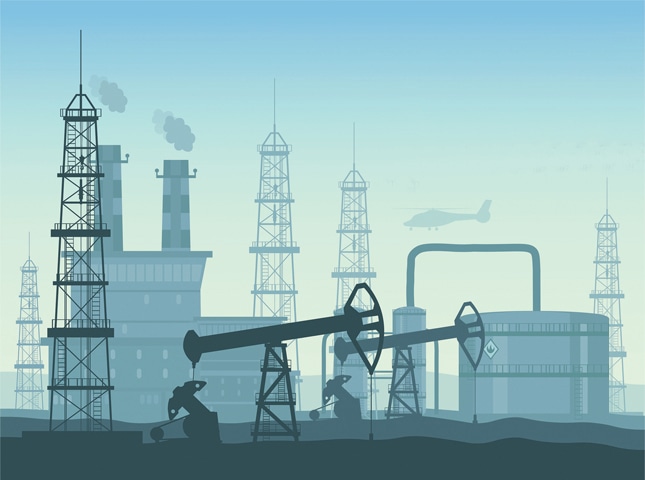
Pakistan Refinery Limited, incorporated in May 1960, has a capacity to process approximately 50,000 barrels per day of crude oil into a variety of distilled petroleum products.
These products range from motor gasoline to high speed diesel, furnace oil, jet fuels, kerosene oil and naphtha.
The Pakistan Refinery Limited (PRL) Managing Director, Aftab Husain, told this writer last Wednesday that the Refinery had successfully commissioned its New Modular Isomerisation Plant in Aug 2015, which, he claimed, was a first of its kind project in Pakistan.
The plant would would not only have a positive impact on the refinery’s profitability but also reduce petrol imports with consequential savings in foreign exchange
The plant converts low value Naphtha into premium product Petrol. Set up with investment of $55 million, the plant has the ability to double the Refinery’s motor gasoline (petrol) production from 12,000m tonnes per month to 24,000m tonnes per month.
He asserted that it would not only have a positive impact on the refinery’s profitability but also reduce petrol imports with consequential savings in foreign exchange.
The project execution strategy adopted a modular approach, which comprised importing 24 fully fabricated modules from UAE. These modules were then transported from the port to the PRL premises in Korangi — after overcoming significant inland logistical challenges — and were directly placed onto the foundations.
The managing director of PRL, who also heads the Oil Companies Advisory Council (OCAC), said that PRL would be converting from ‘hydro skimming refinery’ to ‘deep conversion refinery’ to produce attractively price products. He pointed out that a suitable example of such conversion was the Reliance Industries in India.
The latest released accounts for the nine-month period July-March 2016-17 showed that the PRL had logged profit after tax of Rs1.069 billion, up from Rs860m in the comparable nine months of the earlier year.
In the director’s report for the period, released on April 18, Chairman Farooq Rahmatullah Khan stated that the performance was with the backing of positive refining margins and a stable exchange rate.
He stated that the company was committed to embarking on the Refinery Expansion and Upgrade Project (REUP), including setting up of diesel hydro de-sulphurisation (DHDS) plant as required by the government to produce environment friendly HSD. However, this was held up due to litigation amongst some of the shareholders of the Company.
The Directors complained that the company remained burdened by the negativity of pricing mechanism of High Speed Diesel (HSD), which eroded Rs. 662m from the profit for the nine-months ended March 31.
“Since the inception of this HSD pricing mechanism, whereby refineries are required to pay the difference between HSD actual import price and a notional ex-refinery price, the company’s profitability has been adversely hit by Rs. 3,855m to date”, the chairman said.
Total assets of PRL at March 31, amounted to Rs28bn. The share capital of the company was Rs2.940bn.
At last count at year-ended June 2016, Shell Petroleum Company Limited, London held 30pc shares in PRL, which was followed by a 22.5pc stake with Pakistan State Oil Company Limited. Chevron Global Energy Inc. had a 7.5pc stake in the company while individuals held 18.36pc of the company stock.
On March 30, the refinery carried accumulated losses of Rs3.78bn on its balance sheet. At the stock market, the price of the share in PRL is tagged at around Rs58. The stock moved in the 52-week range of Rs40.13 and Rs81.45.
Gross Refining Margins (GRMs) are important indicators that provide insight into refineries’ performance. In a May 22, report, Fatiq Bin Khursheed, research analyst at Next Capital said that the GRM for the month of May clocked in at $9.0/bbl, down 19pc over the earlier month, but up 67pc over the same month of previous year.
“The sequential decline in margins can be considered surprising given domestic ex-refinery prices for key products, HSD and MS, receded”, said the analyst and added that the timing difference may explain the anomaly as domestic ex-refinery prices are based on the weighted average landed cost of PSO’s imports.
Net sales for the period under review increased to Rs50.0bn, from Rs49.8bn. A note to the accounts explains that sales of regulated products are based on prices notified by Oil and Gas Regulatory Authority (OGRA), which are subject to policy clarification from the Federal Government.
Sales of certain de-regulated products (MS, HOBC, HSD, LDO and Aviation Fuels) are based on prices determined in the light of notifications of the Ministry of Petroleum and Natural Resources.
Under the directive from the Ministry of Petroleum and Natural Resources, any profit after taxation earned by a refinery above 50pc of the paid-up capital as on July 1, 2002 is required to be transferred to a ‘Special Reserve’ to offset any future losses or to make investment for expansion or up gradation of the refineries. It is not available for distribution to shareholders.
The formula under which deemed duty is built into the import parity based prices of some of the products was introduced in order to enable certain refineries, including PRL, to operate on a self financing basis.
Published in Dawn, The Business and Finance Weekly, June 19th, 2017














































